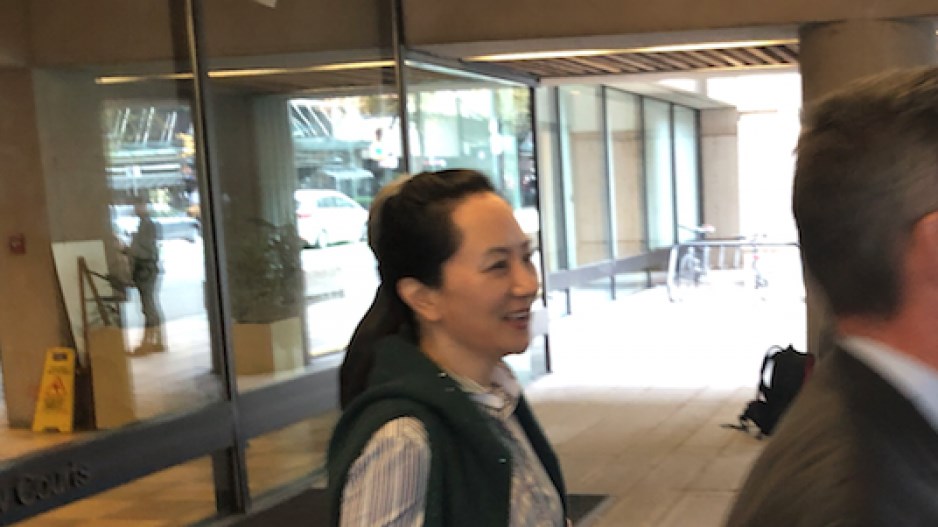While the Meng Wanzhou extradition hearings do not officially resume until March 1, behind-the-scenes court filings, case management meetings and developments in other legal jurisdictions show both the Huawei Technologies exec’s defence and Crown attorneys are readying their battle lines.
In a brief case management meeting in Vancouver this morning, Meng lawyer Richard Peck said the defence will contend a number of issues in addition to what has been disclosed earlier – including what steps the Attorney General of Canada took to try to secure the testimony of a key RCMP officer.
The officer in question is retired RCMP Staff Sgt. Ben Chang, who has since refused to testify. Chang, a former member of the police’s financial crimes unit, was identified by the defence as the officer who supposedly handled FBI requests for access to information from Meng secured during her Dec.1, 2018, questioning and arrest at Vancouver International Airport.
Defence lawyer Scott Fenton said it was “shocking” that Chang would “turn [his] back” to the court when his testimony would shed light on the degree of coordination between Canadian and American law enforcement in the controversial Meng case.
Peck noted that the defence – given the crucial nature of Chang’s testimony – has applied to have the Attorney General of Canada’s office release what steps were taken to produce Chang at the Meng hearings, implying there may be effort by the Crown to conceal evidence.
Crown attorney Robert Frater rebutted those accusations, noting that the Meng defence had known about Chang’s refusal to testify months ahead of time without raising the issue. Associate Chief Justice Heather Holmes, who is presiding over the case, has agreed to hear the defence application on March 15 as part of next month’s long stretch of Meng-related hearings.
Chang lives outside of Canada, in the Chinese Special Administrative Region of Macau.
On other fronts, the Crown made a push of its own, stating in court documents that the defeat of Donald Trump in the 2020 U.S. Presidential Elections should nullify Meng’s defence argument that Trump was attempting to use the Huawei exec as a chip in trade negotiations with China.
Crown lawyers said the changes in circumstances eliminates the “factual underpinnings” of the defence’s argument that Trump played a role in Meng’s arrest.
In addition, news emerged from Great Britain this morning that Meng also lost a bid to gain access to HSBC banking records in her defence. That Meng lied to HSBC about Huawei’s business operations in Iran – thus opening the bank to potential losses stemming from violating U.S. trade sanctions with that country – is one of the central charges in the U.S. Department of Justice’s fraud accusations against Meng.
The Huawei executive argued that HSBC knew what the company was doing in the Iranian market due to an in-person meeting a decade ago in Hong Kong (where an senior HSBC official attended directly). However, the British High Court rejected Meng’s bid to access the bank’s records on the case, as Judge Michael Fordham said that the decision of whether HSBC records are to be accessed should be made in the “appropriate forum” of Canadian courts.
The Meng hearings resume on March 1.




